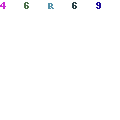History professor begins collaborative research with Walt Whitman Archive
History professor Jason Stacy began collaboration with the Walt Whitman Archive last month to help students and professors alike “study how Walt Whitman became Walt Whitman.”
Before Whitman became known for his writing style and prose, he put pen to paper as a journalist for more than a decade. Stacy is in the first year of a three-year research project related to Whitman’s journalistic works as part of a National Endowment for the Humanities grant.
The University of Nebraska, which houses the Walt Whitman Archive, received the grant and subcontracted with Stacy to serve as an assistant editor.
The purpose of the grant is to encode, transcribe, annotate and upload Whitman’s journalistic works to the digital Whitman archive, for students and scholars to study. The archive currently houses every edition of “Leaves of Grass,” along with letters, journalism interviews and a number of books about the poet.
“It’s a very impressive collection, and adding more of Whitman’s journalism seemed to be a natural fit,” Stacy said.
Stacy will assist in editing sets of Whitman’s editorials beginning in the early 1840s and ending in the mid- to late-1850s.
“It will begin when he first began writing as a young man, as a journalist in his 20s and will go up through the first two editions of ‘Leaves of Grass…,’” Stacy said.
He is currently compiling three editorials from summer 1851 called “Letters from Paumanok” that were published in the New York Evening Post. The editorials describe Whitman’s explorations of the hinterlands of Long Island in a “very informal, personal” style, according to Stacy.
“He’s going out to the little fishing villages and exploring them and he takes on a Whitman sounding voice,” Stacy said. “… [He’s] taking the reader along with him to see what he’s seeing… For Whitman, it’s possible through writing to capture experiences and the feelings elicited by those experiences and inspire them in the reader. Later, Whitman tried to do the same thing through his poetry. Whitman’s beginning to experiment with this in his journalism.”
The significance of including Whitman’s journalistic work in the online archive is that, according to Stacy, “there’s a good argument to be made” that if a person wants to understand Whitman’s poetry, his journalism needs to be understood as well.
Whitman worked in New York as a “Democratic political editorialist,” according to Stacy.
“Some people would argue his work as a journalist influenced his unorthodox style of poetry,” Stacy said.
Mark Neels, a history doctoral student, will help Stacy with annotations and will eventually be trained to do some encoding as well, according to Stacy.
Neels, who has served as Stacy’s research assistant in the past, said Whitman was an important part of cultural history and to work in primary sources in the time period he studies – antebellum and civil war United States – was appealing. He will conduct research on “obscure things that Whitman mentions in his newspaper articles.”
Neels said they conducted at “test run” on one of the articles and found a section where Whitman “discusses breathing pure air.” After looking at medical practices of the time period (the 1850s), Neels said he found that breathing pure air was considered a remedy.
“That little obscure comment [is something] that somebody reading this article online will be able to put their cursor over that phrase and it’ll pull up that research,” Neels said.
Filed Under: Historical Studies













